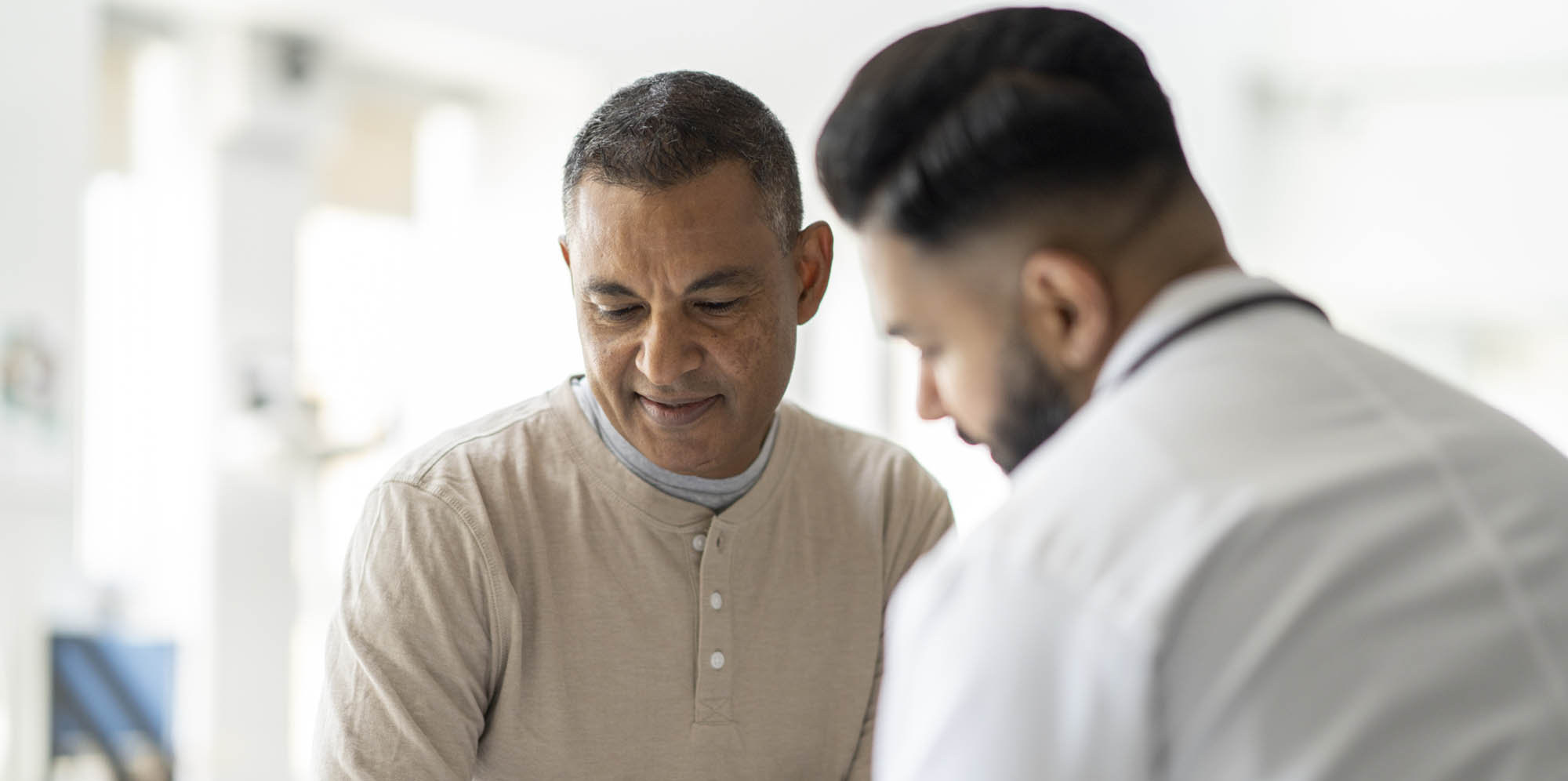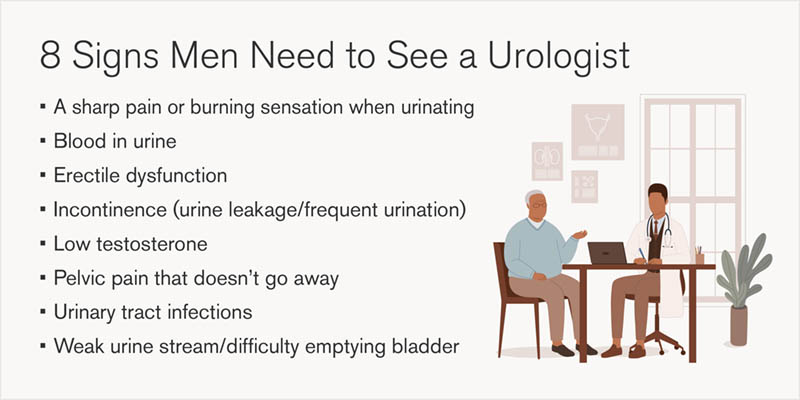When (and Why) It's Important for Men to See a Urologist
October 13, 2024
Categories: Men's Health, Urology
Tags: prostate cancer, Erectile Dysfunction, incomplete emptying of bladder
Just as men's priorities may change over time so do their health challenges. As men get older they often focus more on their family life and career, causing their health to take a back seat. Simply eating right and exercising may no longer be enough to stave off age-related conditions. When new health concerns pop up, it can be hard to find the time to schedule an appointment with your doctor, let alone a urologist.
However, once men reach the age of 40, seeing a urologist should be a priority. Health conditions may appear that, while not prevalent in your 20s or 30s, are now common for many men later in life. Seeing a urologist can make your health and everyday life better and more fulfilling as you age.

We spoke with Dr. John Richgels, a urologist at Loyola Medicine to learn why urology appointments are so important. "If you are a patient who is having any issues with urinary symptoms, any issues with erectile dysfunction or any history of prostate cancer in your family, it is important to check in with a urologist and see if you may be at risk for common issues for men," says Dr. Richgels.
What is a urologist?
A urologist is a medical doctor that specializes in diagnosing and treating conditions that affect the urinary tract and reproductive system, primarily in men. From peeing too little to concerns about fertility, any urological or sexual health concern can be directed to a urologist.
The urinary tract includes the bladder, kidneys, ureters, and urethra. The urinary system is linked closely with the reproductive system. Many conditions that affect one can affect the other. If you're having problems with your urinary tract, kidneys, bladder, or reproductive system, your primary care physician will most likely refer you to a urologist.
Why should men see a urologist?
As men age, their quality-of-life may begin to worsen. Certain conditions that were a distant thought in younger years are suddenly affecting daily life. In men, changes to the reproductive system can affect the urinary system and sexual health.
Urologists are experts in managing these issues and helping you make lifestyle changes or providing treatment to improve your quality of life. If there are any changes that you're noticing, don't expect that it's simply due to aging. Find a urologist to get evaluated and identify the underlying, and many times reversible, cause.
There are many conditions that affect older men and are quite common for urologists to see. They can include:
- Benign prostatic hyperplasia (enlarged prostate). As men age, it can become harder to urinate. Frequent or intermittent urination, using the bathroom throughout the night, or a burning sensation can reflect an enlarged prostate. Usually, medication and/or lifestyle changes can address the issue.
- Prostate cancer. It's far more common for older men to be diagnosed with prostate cancer. In fact, men over the age of 70 are twice as likely as younger people to be diagnosed and four times as likely to have advanced prostate cancer.
- Testicular changes. Men's bodies change as they get older, but lumps or bumps on your testicles are almost never normal. They should always be checked by a urologist, especially if you have testicular pain.
- Erectile dysfunction. Don't assume that erectile dysfunction is a permanent fate. While ED and a decline in libido are fairly common when you enter your 40s, you don't have to suffer from it. A urologist can help you achieve your preferred level of sexual health.
"The most common issues that urologists see are difficulties with urination, kidney stones, and prostate issues. And these are problems that are very common for men as they get older," says Dr. Richgels. "Once you pass the age of 50, there are many men that will have some type of disturbance in their urination."
You should also start seeing a urologist if you have a family history of prostate, testicular, kidney, or other urinary or reproductive cancers.
Many people want to know what to expect at a urology appointment. Usually, the physician will take a complete medical history and perform a screening exam to determine your risk. Prostate cancer and testicular cancer screenings are both common and check for abnormalities in the prostate and testicles.
What are the signs that it's time to see a urologist?
In general, any urinary or reproductive change from your normal life is cause for concern. Bladder issues, problems in the bedroom, or pelvic pain should not be seen as a normal part of aging. They may be symptoms of much more serious health conditions.
"Many men say, 'Well, that's part of aging and this is this is how it is,' but if you have any change from your baseline, it's important to be evaluated by a urologist. Not only are these quality of life issues that we potentially could improve, but it also could be a sign of some more systemic issues. It's important to be evaluated," says Dr. Richgels.
There are common signs and symptoms that men should be aware of if they're worried about urinary or reproductive issues. These include:
- Urinary tract infections
- Incontinence issues like urine leakage or needing to go frequently
- Pelvic pain that doesn't go away
- A sharp pain or burning sensation when urinating
- Blood in urine
- Weak urine stream or difficulty emptying the bladder
- Low testosterone
- Erectile dysfunction
If you notice these or other symptoms, don't hesitate to talk to your primary care provider who may refer you to a urologist.

Why choose Loyola?
Loyola primary and specialty care offices are conveniently located throughout Chicago’s western and southwestern suburbs. The Urology department at Loyola Medicine has one of the most comprehensive and advanced teams in the nation.
To make an appointment, schedule an appointment online.
John Richgels, MD is a urologist at Loyola Medicine. Dr. Richgels completed his residency at the University of Chicago Medical Center. He began his career in urology because it focuses on quality of life for patients who may not want to talk about their health conditions.
Dr. Richgels always wants his patients to know that he is kind, caring, a father of two, and he is truly looking out for their best interests.
Book an appointment today to see Dr. Richgels or another Loyola physician by self-scheduling an in-person or virtual appointment using myLoyola.
